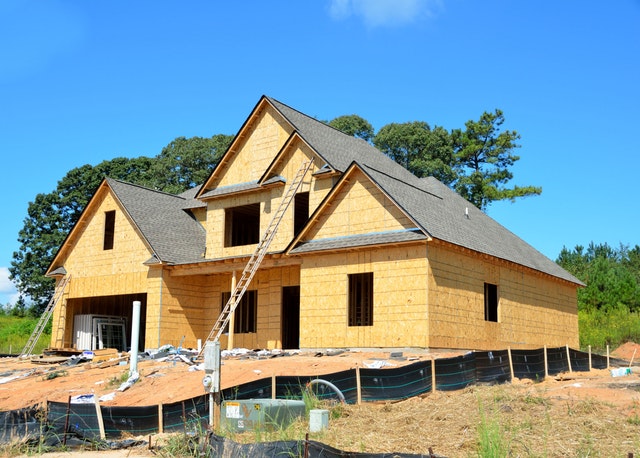Pet-Friendly Homes: Some Selling Do’s and Dont’s
 Nearly 70 million American households include at least one pet, but most prospective buyers won’t want to see evidence of pets in a home on the market.
Nearly 70 million American households include at least one pet, but most prospective buyers won’t want to see evidence of pets in a home on the market.
Here are some tips about how to sell a pet-friendly home.
Prior To Listing
Point out special pet features to your real estate agent — a cat door, feeding station or a pet shower, even a fenced back yard or a dog run can be a bonus to many buyers. It’s important to remember that buyers want to imagine their pets in the home, not yours! Minimize your pet’s presence by decluttering pet supplies as well as your personal items.
While it is best to downplay non-human residents in a home for sale, some pets are more difficult to camoflage or move out of the way. If you have a bird, an aquarium, or large exotic pets, use your best judgment while keeping the “less is more” philosophy in mind.
If there is any pet damage, it should be repaired before you show the home. If necessary, repaint walls, refinish floors, or replace carpeting. Ask a friend or relative (one without a pet) to give your house a sniff test. If there are any odors, do whatever is necessary to eliminate them. It is not likely enough to try to mask the odors with air freshners in order to make the best impression on potential buyers.
Dealing With Showings
Always arrange for animals to be out of the house when a showing is scheduled. If you can’t be there to pick up a pet, trust a neighbor to take the dog for a walk or herd the cat into a carrier and keep it for a few hours. A barking dog in the back yard is annoying, and even the cutest puppy can intimidate a buyer. Cats, too, are notoriously independent, and not all humans are cat-lovers.
Buyers expect even a house with pets to be kept scrupulously clean. Sweep and vacuum up pet hair as often as necessary. Pick up feeding bowls and toys, and remove cat litter boxes prior to a showing. Polish nose prints off glass and put away the scratching pole. Think of pets and pet items the same as you would personal photographs and other memorbillia that clutters your home. Removing those items helps the buyer see themselves in your home and can increase the likelihood of a sale.
It’s also wise to double check with your insurance company to determine your liability in the event that your pet bites or otherwise injures anyone at your property.
Before And During Moving
Remember that moving is stressful, not only for you, but for your best friend as well. Speak to your veterinarian in advance about possible symptoms of anxiety such as increased accidents, changes in appetite, aggressive behavior or other personality changes that may occur. If you notice any significant signs of anxiety, seek treatment.
If at all possible, take your pet to see your new home prior to your move. If not, continue to look for signs that your pet is feeling disoriented or anxious. Finding a reliable and trustworthy veternarian near your new home beforehand is a good idea in case your pet is struggling. Take extra care that your pet doesn’t try to “escape” back to the familiar and get lost.
Selling your home and moving into a new home can be exciting, complicated and stressful events. The same can be true for your pets. With a little bit of extra planning, things can go a lot smoother for your entire family. Contact your real estate professional for even more tips for a successful home selling, home buying and relocating experience.

 When it comes to a property that’s been financed with a mortgage, homeowners can experience the need or desire to live elsewhere from time to time. Renting may be considered as a way to recover some of their costs when they are not using their home.
When it comes to a property that’s been financed with a mortgage, homeowners can experience the need or desire to live elsewhere from time to time. Renting may be considered as a way to recover some of their costs when they are not using their home. Before an owner can market a property to buyers that want to use a FHA loan, he will want to familiarize himself with the FHA’s standards. FHA won’t insure loans on just any property.
Before an owner can market a property to buyers that want to use a FHA loan, he will want to familiarize himself with the FHA’s standards. FHA won’t insure loans on just any property.
 Buying a new home is exciting. Buying a brand new home can be even more so with the realization of being the first owner and possibly being able to choose your own layout and finishes. The prospect of owning new construction is definitely exciting, but it doesn’t come without its own set of questions.
Buying a new home is exciting. Buying a brand new home can be even more so with the realization of being the first owner and possibly being able to choose your own layout and finishes. The prospect of owning new construction is definitely exciting, but it doesn’t come without its own set of questions.